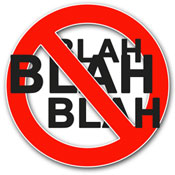‘Bill Clinton is like nuclear energy’: known known but a new phrase
 It’s rare in the samey, stale homogenous world of political writing to find a new descriptive phrase that’s bold and apt and actually says something. So how about this one from the US?
It’s rare in the samey, stale homogenous world of political writing to find a new descriptive phrase that’s bold and apt and actually says something. So how about this one from the US?
“Bill Clinton is like nuclear energy,” said David Axelrod, a strategist on President Obama’s campaigns. “If you use it properly, it can be enormously helpful and proactive. If you misuse it, it can be catastrophic.”
Mr Axelrod was quoted in a Washington Post piece on the challenge faced by Hillary Clinton’s campaign – what to do with her more famous, more charismatic (and more likeable) spouse Bill.
It’s a good question. As the correspondent put it, “In a presidential race that could include two dozen candidates, none has a spouse like Bill Clinton — a former president whose sprawling charitable ventures are rife with potential conflicts of interest; an admired public figure whose common touch propelled his rise but who now charges up to $500,000 to give a speech; a curious ideas man whose penchant for speaking his mind drives news cycles; and a globe-trotting icon whose recognizable tuft of white hair draws onlookers everywhere, from his old Arkansas haunts to the bustling souks around Marrakesh’s central square.”
And that is exactly the problem.
Bill Clinton is magnetic in a way that pulls all attention to him. Or as Mr Axelrod puts it in yet another memorable and relatively new turn of political phrase: it would be foolish for the Clintons to campaign together regularly. “It’s hard to shine when you’re standing next to the sun. He’s a luminescent character, and it is diminishing to have him out there at her side.”


